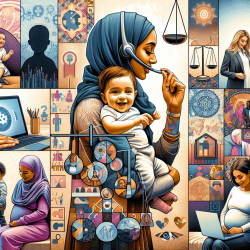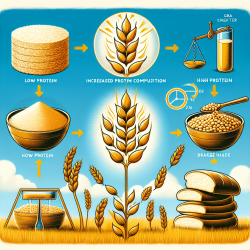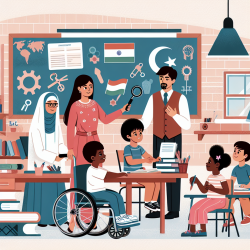Introduction
The Birth and Beyond (BABY) study is a pioneering research effort that investigates the social and environmental determinants affecting pregnancy-related outcomes in Black American families. Conducted by a team of researchers from various departments at the University at Albany and Boston College, this study provides critical insights into the factors influencing health disparities in Black birthing people and their infants. As practitioners in the field of speech-language pathology and child development, understanding these insights can be pivotal in improving outcomes for the children and families we serve.
The Study's Core Objectives
The BABY study aims to explore how micro-level (interpersonal and family) and macro-level (neighborhood and environmental) risk and resiliency factors interact to shape the health of birthing people and their infants. By following 350 Black families from pregnancy through the first postpartum year, the study evaluates:
- The impact of prenatal and life course exposure to stressors and resiliency factors on birth and health outcomes.
- The role of physiological stress dysregulation as a contributor to health outcomes.
- The protective role of individual, familial, cultural, and community supports.
Key Findings and Implications for Practitioners
One of the significant findings of the BABY study is the identification of stress physiology as a critical factor in health disparities. The study highlights that exposure to multilevel stressors can alter stress physiology, leading to adverse health outcomes for both birthing people and their infants. For practitioners, this underscores the importance of:
- Recognizing the impact of stress and its physiological manifestations in clients.
- Incorporating stress management and resilience-building strategies into therapeutic interventions.
- Advocating for culturally responsive practices that address the unique stressors faced by Black families.
Encouraging Further Research
The BABY study also emphasizes the need for further research into the specific risk and resiliency processes within Black families. By moving beyond between-group comparisons, researchers and practitioners can develop more targeted interventions that address the root causes of health disparities. Practitioners are encouraged to:
- Engage in collaborative research efforts that focus on within-group dynamics.
- Utilize data-driven approaches to identify and address the specific needs of Black families.
- Contribute to the growing body of research on health equity and social determinants of health.
Conclusion
The insights gained from the BABY study are invaluable for practitioners dedicated to improving health outcomes for children and families. By integrating these findings into practice and advocating for further research, we can contribute to a more equitable healthcare landscape. To read the original research paper, please follow this link: The Birth and Beyond (BABY) study: protocol for a birth cohort study investigating the social and environmental determinants of pregnancy-related outcomes in Black American families.










